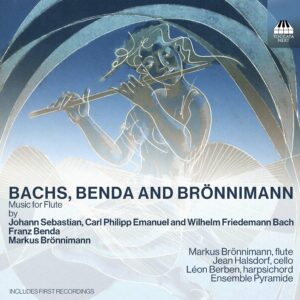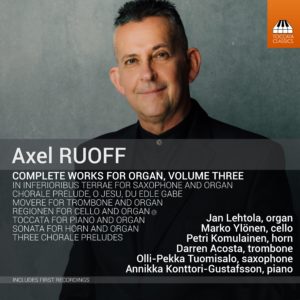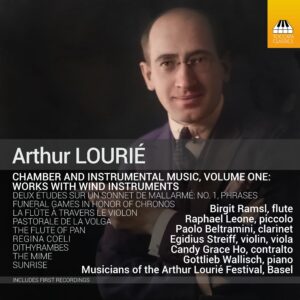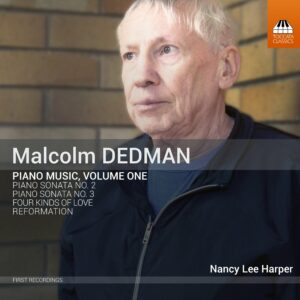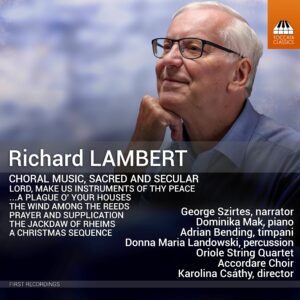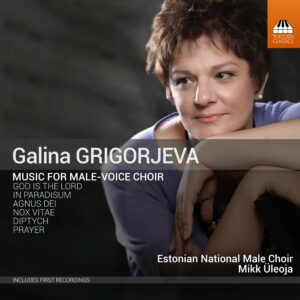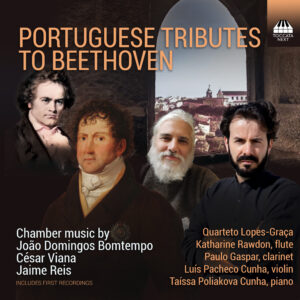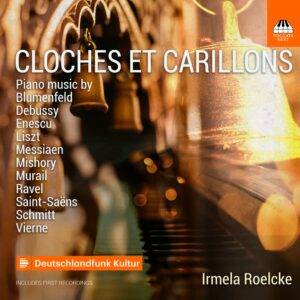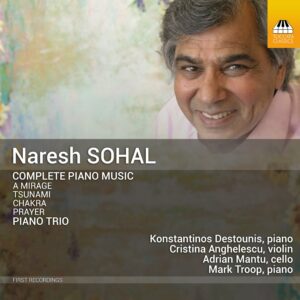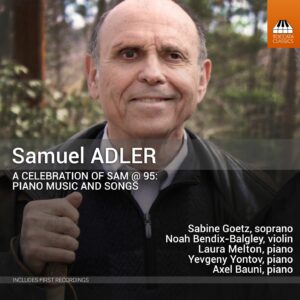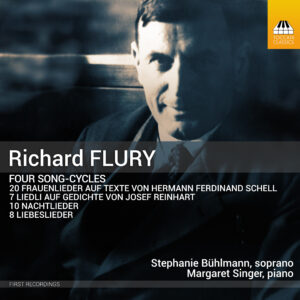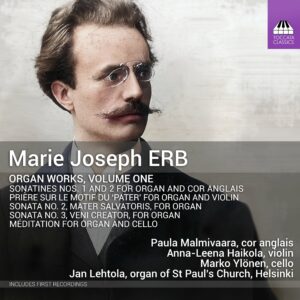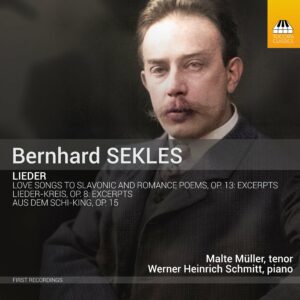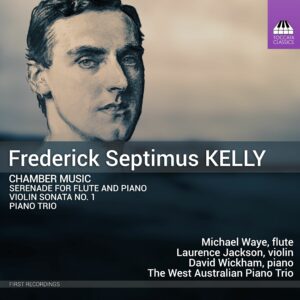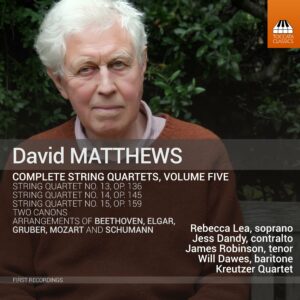Search Results for "fantastic four first steps online free 123movies" – Page 2
Showing results for fantastic four first steps online free movies movies
Bachs, Benda and Brönnimann
Four of the composers on this recording met in real life – in Potsdam, in spring 1747. In this album they are reunited, joined by the flautist-composer who brings their encounter to life once more, the Swiss-born Markus Brönnimann. The stylistic contrasts between works three centuries apart serve to accentuate their strengths, the formal elegance of the earlier pieces underlining the expressive liberty of the recent ones. Brönnimann combines the two worlds with his luminous arrangement of one of the best-known of all classical compositions.
Markus Brönnimann, flute
Jean Halsdorf, cello (Tracks 1–3, 7–9, 11–13, 15–18)
Léon Berben, harpsichord (Tracks 1–3, 7–9, 11–13, 15–18)
Ensemble Pyramide (Tracks 4–6, 10)
Markus Brönnimann, flute Barbara Tillmann, oboe
Ulrike Jacoby, violin
Muriel Schweizer, viola
Anita Jehli, cello
Marie Trottmann, harp
Axel Ruoff: Complete Works for Organ, Volume Three
The organ works of Axel Ruoff, born in Stuttgart in 1957, constitute one of the most important contributions to the literature for the instrument by any composer since Messiaen, with Ruoff often using its unparalleled resources to write music of extraordinary power and dramatic flair. This third volume in Jan Lehtola’s complete recording features the organ in the unusual role of duo partner in chamber music – but it is chamber music conceived on a symphonic scale. Here these five muscular duo works are separated by a series of weighty chorale preludes.
Annikka Konttori-Gustafsson, piano (Track 1)
Marko Ylönen, cello (Track 3)
Olli-Pekka Tuomisalo, saxophone (Track 5)
Petri Komulainen, horn (Tracks 9–11)
Jan Lehtola
organ of Sovituksenkirkko, Hollola, Finland (Track 1)
organ of St Michael’s Church, Turku (Tracks 2, 4, 6, 8–11)
organ of St Paul’s Church, Helsinki (Tracks 3, 5)
Arthur Lourié: Chamber and Instrumental music, Volume One: Works with Wind Instruments
The turbulent life of Arthur Lourié (1891–1966) – student of Glazunov, friend of Blok, lover of Akhmatova, commissar of the Soviet regime, an exile in Germany, France and the USA, ghost-writer for Koussevitzky – is reflected in the wide range of references in his music, from echoes of the ceremonies of ancient Greece to Neo-Baroque and Neo-Classical procedures perhaps inspired by his collaboration with Stravinsky in Paris. Some of the works in this first of two albums surveying his chamber and instrumental music have an almost ritual formality; in others a mischievous grin is not far from the surface.
Birgit Ramsl (flute)
Raphael Leone (piccolo)
Paolo Beltramini (clarinet)
Candy Grace Ho (contralto)
Gottlieb Wallisch (piano)
Egidius Streiff (viola, violin);
Musicians of the Arthur Lourié Festival, Basel:
Lucie Brotbek Prochásková (alto flute)
Hansjürgen Wäldele (oboe)
Nicolas Rihs (bassoon)
Simon Lilly (trumpet)
Nicolas Suter (percussion)
Agnès Mauri (viola)
Mateusz Paweł Kamiński (cello)
Malcolm Dedman: Piano Music, Volume One
A number of diverse influences have helped shape the musical language of Malcolm Dedman (born in London in 1948 but resident in provincial South Africa since 2007), among them Bartók and Messiaen, his Bahá’í Faith and, more recently, his new South African homeland. Points of contact with other composers can be heard, too, not least Debussy, Ravel, Barber and Ginastera. These piano works embody a wide range of moods, from gentle introspection to energetic, dissonant vigour.
Nancy Lee Harper, piano
Richard Lambert: Choral Music, Sacred and Secular
The choral music of Richard Lambert, born in Bath in the English West Country in 1951, covers a wide range of expression, ranging on this album from straightforward SATB settings for church performance to a sardonic parody of the excesses of established religion. It also encompasses the timeless and the timely, with a number of contributions to the age-old tradition of Christmas music to a cantata inspired by the Covid pandemic.
This is the first recording of the Accordare Choir, founded and conducted by Karolina Csáthy, initially using former choral scholars of The Choir of Trinity College Cambridge; since then it has expanded in size, scope and accomplishment.
George Szirtes, narrator
Dominika Mak, piano
Adrian Bending, timpani
Donna Maria Landowski, percussion
Accordare Choir
Karolina Csáthy, director
Galina Grigorjeva: Music for Male-Voice Choir
The choral music of Galina Grigorjeva – born in Simferopol in Ukraine in 1962 and based in Tallinn, in Estonia, since 1994 – is deeply rooted in the traditions of the Orthodox Church and in ancient Russian and Slavonic folklore. Although clearly by a contemporary composer, her works have a timeless, even hypnotic, quality that seems to reach back through the ages. She has been working with the Estonian National Male Choir – one of the finest in a country full of choirs – for some years now, and some of the works here were composed or arranged specifically for this recording.
Theodor Sink, cello (8, 9)
Aleksandr Mihhailov, bass (3)
Aleksander Arder, tenor (7)
Margus Vellmann, tenor (7, 9)
Grigori Rutškin, tenor (9)
Estonian National Male Choir
Mikk Üleoja, conductor
Portuguese Tributes to Beethoven
These three compositions by three Portuguese composers pay direct and indirect tribute to the music of Beethoven. The Piano Quintet by João Domingos Bomtempo was written in the style of the Viennese Classical mainstream even as Beethoven was changing its direction. The two works by César Viana and Jaime Reis both have distant roots in Beethoven but pay their homage in very different styles, one using relatively traditional language and the other more radical – as was Beethoven himself, of course.
Quarteto Lopes-Graça (Tracks 1–8)
Eliot Lawson and Luís Pacheco Cunha, violins
Isabel Pimentel, viola
Catherine Strynckx, cello
Katharine Rawdon, flute (Track 9)
Paulo Gaspar, clarinet (Track 9)
Luís Pacheco Cunha, violin (Track 9)
Taíssa Poliakova Cunha, piano
Cloches et Carillons
The piano is perhaps better suited than any other instrument to evoke the sound of bells – evening bells, bells of farewell and of joy, funereal bells, bells with spiritual overtones – and late-Romantic and twentieth-century French and Russian composers in particular have responded to the challenge of capturing those sonorities at the keyboard. This recital explores three centuries of pianistic tintinnabulation, and its ability to capture atmosphere and emotion.
Irmela Roelcke, piano
Naresh Sohal: Complete Piano Music
The British-based Naresh Sohal, born in Punjab in 1939, was the first person of Indian origin to make his mark as a composer of western classical music, writing works that displayed an unusual kind of fusion – but not stylistic: his compositions often use the language of western modernism to explore the ideas of Hindu philosophy. The handful of piano pieces that he wrote between 1974 and his death in 2018 use musical analogies to address issues of perception, even existence itself, in a language that employs Xenakis-like extremes of dynamics and virtuosity, of clarity and density and of energy and calm.
Konstantinos Destounis, piano (Tracks 1–5)
Cristina Anghelescu, violin (Track 6)
Adrian Mantu, cello (Track 6)
Mark Troop, piano (Track 6)
Samuel Adler: A Celebration of Sam @ 95: Piano Music and Songs
The youthful agility of Samuel Adler – born in Mannheim in 1928 but long since regarded as the dean of American music – would appear to contradict the fact that he reached his 95th birthday in March 2023. This celebration of his productive life – as composer, teacher, writer and conductor – testifies to his ongoing vigour with a programme of songs and piano works composed, for the large part, after his 90th birthday, many of them tributes to musician friends. His music has its roots in the Neo-Classical clarity of composers like Copland and Hindemith, who were among his teachers, but has a raunchy energy entirely
Adler’s own – and which would be remarkable in a composer half his age.
Sabine Goetz, soprano (Tracks 4, 11, 12, 17-20)
Noah Bendix-Balgley, violin (Tracks 17-20)
Laura Melton, piano (Tracks 1-3, 5-10)
Yevgeny Yontov, piano (Tracks 1-3, 13-16, 21-30)
Axel Bauni, piano (Tracks 4, 11, 12, 17–20)
Richard Flury: Four Song-Cycles
The output of Richard Flury (1896-1967), one of Switzerland’s most prolific composers, ranges from operas and ballets to symphonies, instrumental concertos, sacred and secular vocal works, chamber music and no fewer than 181 songs with piano accompaniment. These four song-cycles, written between 1920 and 1946, contain 45 of them, their concision nonetheless embracing an expansive, Romantic style of which Schumann himself might have approved. The prevailing mood is one of an open-hearted sincerity, occasionally enlivened by a dash of humour.
Stephanie Bühlmann, soprano
Margaret Singer, piano
Marie Joseph Erb: Organ Works, Volume One
The enormously prolific Marie Joseph Erb (1858–1944) has somehow escaped the attention of posterity, although the quality of his music would seem to be on a par with contemporary organist-composers whose works are far better known. Erb’s long life – he heard Berlioz conduct in 1863 and was still composing in 1944 – was focused on Strasbourg, where he was active as pianist, organist and professor, though he had studied in Paris, with Fauré, Gigout, Saint-Saëns and Widor, and later with Liszt in Weimar. This first album devoted to his organ music in almost 30 years sandwiches four lyrical chamber works between two towering sonatas.
Jan Lehtola, organ of St Paul’s Church, Helsinki
Paula Malmivaara, cor anglais (4–6, 8–10)
Marko Ylönen, cello (7)
Anna-Leena Haikola, violin (11)
Martin Skafte: 24 Preludes for Piano
The fascination of the Swedish composer Martin Skafte (b. 1980) with the 24 Préludes of Claude Debussy inspired 24 preludes from Skafte himself, with occasional oblique references to Debussy’s originals but using Skafte’s own musical language. Like Debussy, Skafte exploits the colours and sonorities of the piano but also he requires Lisztian virtuosity and pulls in a range of further influences, among them ragtime and Ligeti – and a sly sense of humour can often be detected in the background.
Jonas Olsson, piano
Bernhard Sekles: Lieder – Aus dem Schi-King and other Songs
Bernhard Sekles (1872–1934) was one of the leading figures in German music in the first decades of the twentieth century, prominent as composer, educator and administrator. In 1928, as director of the Hoch Conservatorium in Frankfurt, he established the first academic programme in jazz studies, an act of courage and conviction that unleashed furious attacks from the Nazi press. His own late-Romantic music, banned during the Third Reich, has been virtually forgotten, although he composed in all major genres, including opera, orchestral works and chamber music. This first-ever album of his Lieder includes a major song-cycle, the freewheeling Aus dem Schi-King, based on ancient Chinese poetry in adaptations by Friedrich Rückert, its moods ranging from the heroic to the comic.
Malte Müller, tenor
Werner Heinrich Schmitt, piano
Mit Deutschem Kommentar
Frederick Septimus Kelly: Chamber Music
Frederick Septimus Kelly, born in Sydney in 1881, was on the way to becoming one of Australia’s most important early composers when he was killed during the Battle of the Somme in 1916. The three works recorded here – for the first time – underline just how grievous was that loss, not only for Australia but for the musical world more generally. Kelly’s D minor Violin Sonata is an astonishingly assured work for a twenty-year-old student composer; his Serenade for flute and piano exudes good-natured charm; and the two surviving movements of his Piano Trio – which have a Brahmsian intensity – suggest that he would have been one of the major composers of the twentieth century.
Laurence Jackson, piano
Michael Waye, flute
David Wickham, piano
The West Australian Piano Trio
David Matthews: Complete String Quartets, Volume Five
The American critic Robert Reilly described the music on Volume One of this cycle of the complete string quartets of David Matthews (b. 1943) as ‘some of the most concentrated, penetrating writing for this medium in the past 30 years or more. It is musical thinking of the highest order and quartet writing in the great tradition of Beethoven, Bartók, Britten, and Tippett’. Matthews’ three most recent quartets call in a wide range of references. Birdsong – heard in Nos. 13 and 14 – is a standard Matthews topos; and the fugal No. 15 seems to find a middle ground between late Beethoven and folk-music. No. 13 presents the biggest surprise: it introduces four solo voices, siting the work somewhere between Berg’s Lyric Suite and Vaughan Williams’ Serenade to Music. Some touching arrangements and two canons for two Michaels – Tippett and Berkeley – complete the programme.
Rebecca Lea, soprano 8
Jess Dandy, contralto 8
James Robinson, tenor 8
Will Dawes, baritone 8
Kreutzer Quartet
Peter Sheppard Skærved and Mihailo Trandafilovski, violins
Clifton Harrison, viola
Neil Heyde, cello
Stay In the Know
JOIN THE TOCCATA NEWSLETTER
"*" indicates required fields
By visiting our site, you agree to our privacy policy regarding cookies, tracking statistics, etc.
